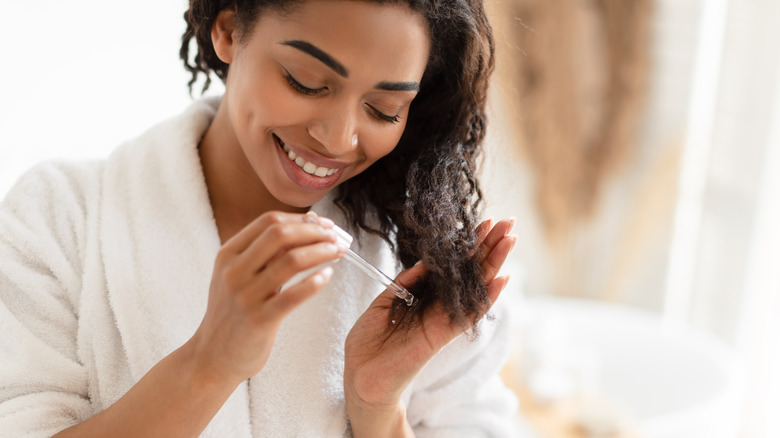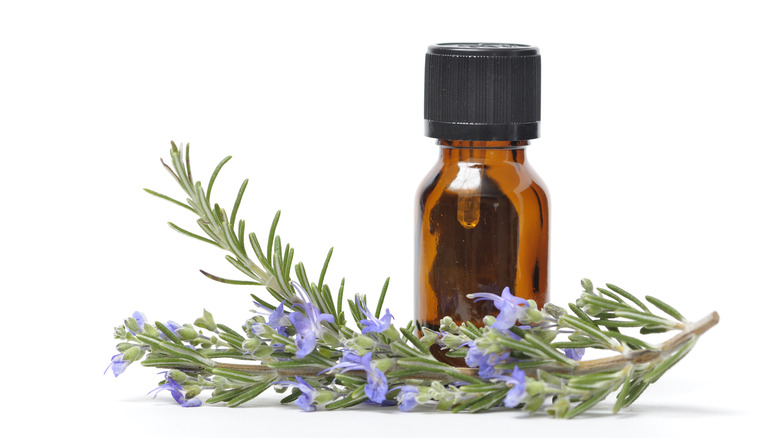Will Hair Oils Do Anything If You Have An Oily Scalp? Here's The Deal
If you have oily hair, you know the frustrating struggles of finding a hair care regimen that keeps your hair hydrated without looking greasy. It's hard to know what hair advice to follow, especially when every day more hair trends pop up. Hair hydration and moisture are two different things, so even if your hair is hydrated, issues can arise if that hydration is not sealed in. Hair oils have long been a staple across the globe for helping to seal hair hydration, many hair oils only contain one or two ingredients, making them a beloved natural product. Hair oils can maintain frizz, and certain oils can help stimulate hair growth.
We get it, it can be scary being told to use hair oils when you already have an oily scalp. No one wants their hair to look greasy! But, if used correctly, hair oils can help scalps that overproduce oil and leave your locks looking hydrated, smooth, and healthy. The key is using the right oils and applying them in a way that won't clog up your natural oil production.
The best oils if you have an oily scalp
When you are researching oils, avoid ones that promise extra shine. Oils with these labels can contain ingredients like silicone that can clog the scalp causing more oil production, according to The Hair Fuel. If your hair can produce enough oil naturally, you do not want a product that is going to be creating the same results. This is one of the first mistakes people who want to try hair oils usually make.
Vogue India explains that rosemary oil is antifungal and contains oil-removing properties. Rosemary is a lightweight oil, making it less apparent on your scalp. The oil also helps to shrink pores, meaning less oil will appear on the scalp. Another oil favored for helping with oil production is jojoba oil. A report in Polymers explains that jojoba oil is similar in structure to sebum, the hair's natural oil. Due to its similar weight and build, jojoba can interact with our pores very effectively. What this means is while jojoba seals in moisture, our bodies don't usually continue to produce an excess of sebum. This leaves your hair oil levels relatively balanced.
How to properly use hair oils
To avoid causing buildup it is recommended to use hair oils up to at least 10 minutes before a hair wash, according to Coveteur. You are welcome to apply them a couple of hours before, depending on how much time you have. Just be sure to follow up with a thorough wash, preferably with a sulfate-free shampoo to prevent all the oils in your hair from being stripped.
If oil buildup is a concern, you may want to use a clarifying shampoo and wash your hair super well. You might even need to triple-wash for optimal results. We recommend massaging the oil into your scalp to help your pores absorb the product. Using oil before a hair wash is also recommended because oils can cling to dirt and other excess oil, when you wash your hair thoroughly you can remove this buildup and leave perfectly balanced hair.


